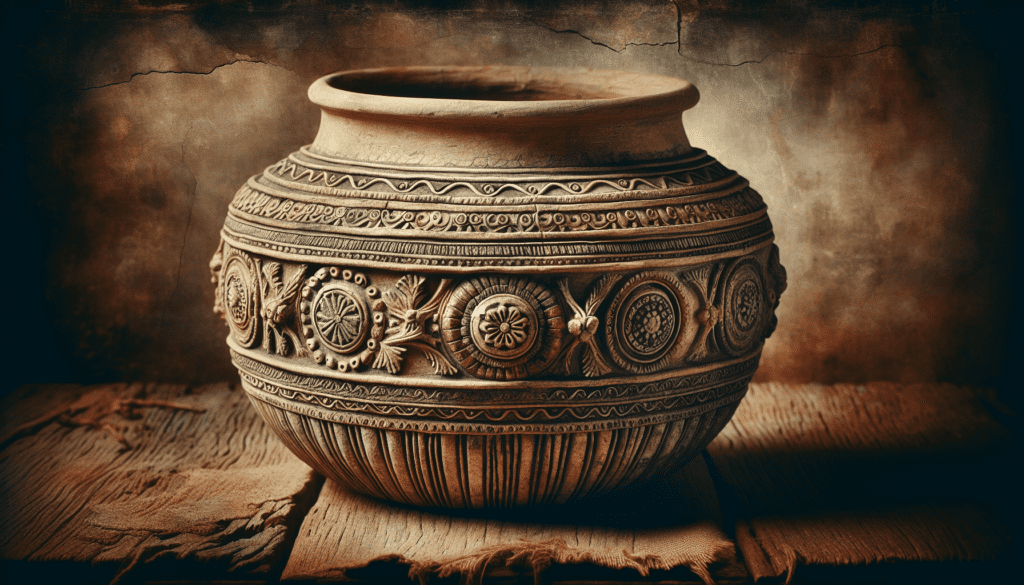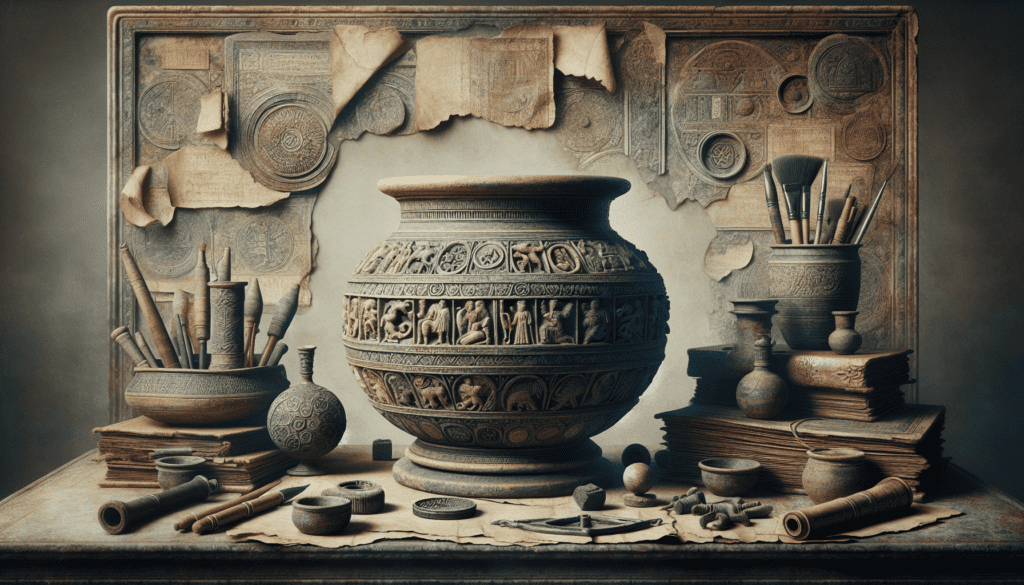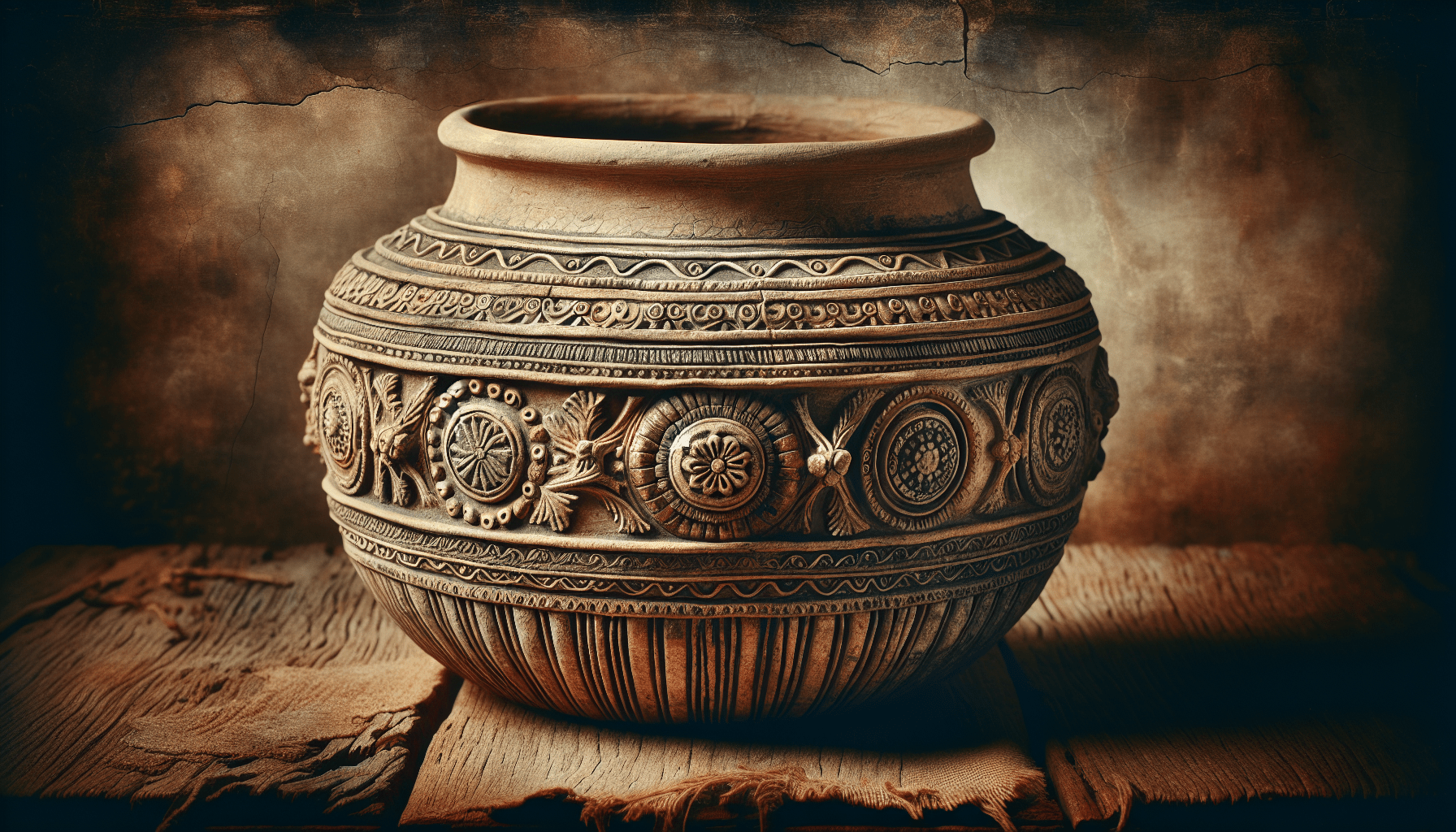Master Of Arts In Archaeology (MA Archaeology) is a specialized graduate degree designed to provide you with in-depth knowledge and advanced skills in the field of archaeology. Through this program, you will explore critical methodologies, engage with various historical and cultural contexts, and participate in both theoretical and practical experiences. Comprehensive coursework and fieldwork opportunities enable you to develop a profound understanding of archaeological practices, equipping you to contribute meaningfully to academic research, cultural resource management, and heritage conservation. In pursuing an MA in Archaeology, you position yourself at the forefront of uncovering and preserving human history. Have you ever wondered how we uncover the mysteries of ancient civilizations? If you have a passion for history, artifacts, and the stories of past societies, a Master of Arts in Archaeology (MA Archaeology) might be the ideal path for you. This advanced degree goes beyond mere fascination and equips you with the skills, knowledge, and methodologies necessary to explore, document, and interpret human history through material remains.

What is a Master of Arts in Archaeology?
A Master of Arts in Archaeology is a graduate-level program designed to provide you with advanced training in archaeological theory, methods, and practical skills. The degree encompasses a broad range of topics, including excavation techniques, artifact analysis, dating methods, conservation, and heritage management.
Curriculum
The curriculum typically involves a combination of core courses, electives, practical fieldwork, and a thesis or research project. Below is an example of a typical curriculum structure for an MA in Archaeology program:
| Core Courses | Elective Courses | Practical Requirements |
|---|---|---|
| Archaeological Theory | Ancient Technologies | Fieldwork/Excavation |
| Archaeological Methodology | Cultural Resource Management | Laboratory Analysis |
| Artifact Analysis | Bioarchaeology | Internship/Practicum |
| Dating Methods and Chronology | Underwater Archaeology | Thesis/Research Project |
| Conservation Techniques | GIS and Remote Sensing | Presentation/Seminar |
Specializations
As part of your degree, you might have the opportunity to specialize in a particular area of archaeology, such as:
- Prehistoric Archaeology: Study of human societies before the advent of written records.
- Historical Archaeology: Focus on societies that left behind written documents.
- Bioarchaeology: Integration of biological and archaeological methods to study human remains.
- Environmental Archaeology: Study of past human interactions with their environment.
- Underwater Archaeology: Examination of submerged sites and shipwrecks.
- Cultural Resource Management (CRM): Government and private sector employment in heritage conservation and site management.
Admission Requirements
The admission process for an MA in Archaeology can be competitive, and you will generally be expected to meet the following criteria:
Academic Qualifications
Most programs require a bachelor’s degree in archaeology, anthropology, history, or a related discipline. A strong academic record and relevant coursework in archaeology or a closely related field will be beneficial.
Prerequisites
- Transcripts: Official academic records from your previous institution(s).
- GPA: A minimum Grade Point Average (GPA) as specified by the program.
- Letters of Recommendation: Typically, two or three letters from academic or professional references.
- Statement of Purpose: A compelling essay outlining your research interests, career goals, and reasons for pursuing an MA in Archaeology.
Additional Requirements
- Resume/CV: Detailing your academic and professional background.
- Sample of Work: Academic papers or projects related to archaeology may be required.
- GRE Scores: Though not always mandatory, some programs may request your GRE scores.
- Language Proficiency: For international students, proof of English proficiency through TOEFL or IELTS scores.
Skills and Competencies
Throughout the course of your MA in Archaeology, you will develop a range of skills and competencies essential for professional and academic success in the field. These include:
Analytical Skills
You will learn to analyze artifacts and ecofacts, interpret excavation data, and synthesize information from various sources to draw meaningful conclusions about past human activities.
Technical Proficiency
You will gain hands-on experience with archaeological tools and techniques, including:
- Excavation Methods: Proper techniques for digging and recovering artifacts.
- Laboratory Skills: Analytical methods for examining and preserving artifacts.
- GIS and Remote Sensing: Use of Geographic Information Systems (GIS) and remote sensing technologies for site analysis and mapping.
Research Abilities
Developing strong research skills is crucial. This includes:
- Literature Review: Comprehensive review of existing research literature.
- Hypothesis Formation: Developing and testing hypotheses.
- Data Collection and Analysis: Gathering and statistically analyzing data.
Communication Skills
Effective communication of your findings is necessary, both orally and in written formats. This entails:
- Report Writing: Detailed excavation reports and research papers.
- Presentations: Delivering findings at conferences and seminars.
- Public Outreach: Engaging with the wider community through public lectures and publications.
Career Prospects
An MA in Archaeology opens up diverse career opportunities across various sectors. Here’s a breakdown of potential career paths:
Academic Careers
If you are inclined towards academia, you may pursue a PhD and eventually become a university professor or a researcher.
Museums and Heritage Organizations
Jobs in museums, galleries, and heritage organizations involve roles such as:
- Curator: Responsible for managing collections and organizing exhibitions.
- Conservator: Specializes in the preservation and restoration of artifacts.
- Educator: Designs educational programs for public engagement.
Public and Private Sector Employment
Archaeologists are also employed in governmental agencies and private firms, particularly in Cultural Resource Management (CRM). Typical roles include:
- Survey Archaeologist: Conducts site assessments before construction projects.
- Project Manager: Oversees archaeological projects and compliance with legal requirements.
- Policy Advisor: Develops heritage policies and legislation.
Non-Governmental Organizations (NGOs)
NGOs focused on heritage conservation, cultural preservation, and community engagement also hire archaeologists for various roles.
Freelance and Consulting
With sufficient experience, you may also explore freelance opportunities, offering consultancy services for archaeological projects worldwide.

Challenges and Considerations
While an MA in Archaeology can be incredibly rewarding, it’s essential to be aware of the challenges associated with this field:
Physical Demands
Archaeological fieldwork can be physically challenging, involving strenuous activities such as digging, lifting, and walking long distances, often in harsh weather conditions.
Job Market
While there are diverse opportunities, competition can be stiff. Gaining practical experience through internships and fieldwork is crucial for enhancing employability.
Funding
Securing funding for archaeological projects and research can sometimes be challenging. Skills in grant writing and fundraising will be beneficial.
Tips for Success
To maximize your success in an MA in Archaeology program, consider the following tips:
Gain Practical Experience
Engage in as much fieldwork and laboratory work as possible. Not only will this enhance your resume, but it will also provide invaluable hands-on experience.
Network
Build connections with professors, peers, and professionals in the field. Attend conferences, workshops, and seminars to network and stay updated on the latest research and job opportunities.
Develop a Niche
Identify and specialize in a niche area of archaeology that fascinates you. Becoming an expert in a specific field can set you apart from other job seekers.
Continue Learning
Stay abreast of new methodologies, technologies, and research trends in archaeology. Continuing education and professional development are vital for long-term success.
Conclusion
A Master of Arts in Archaeology is more than just a degree; it is an opportunity to delve into the depths of human history and culture. By acquiring advanced skills and knowledge, you open the door to a wide array of career opportunities that allow you to contribute to our understanding of the past and its preservation for future generations. Whether you aspire to work in academia, museums, government, or the private sector, the journey promises to be intellectually enriching and professionally fulfilling. If you’re ready to unearth the stories buried beneath our feet, an MA in Archaeology could be your next step towards an exciting and rewarding career.
In conclusion, the Master of Arts in Archaeology offers a blend of academic rigor, practical training, and career opportunities that are unmatched. Pursuing this degree will not only enhance your understanding of the human past but also empower you with the tools to preserve and interpret history for future generations. Whether you are driven by curiosity, a passion for history, or a commitment to heritage conservation, the MA in Archaeology is a gateway to a fulfilling and impactful career. So, are you ready to embark on this fascinating journey?

